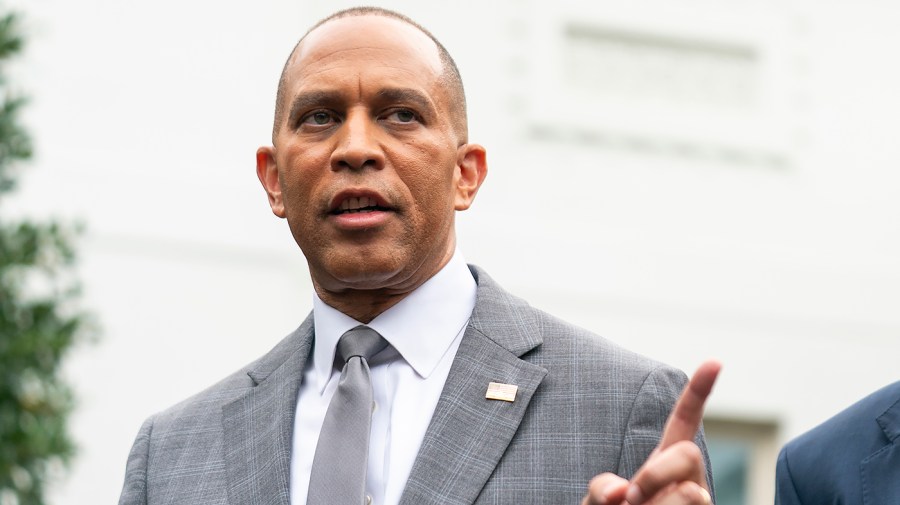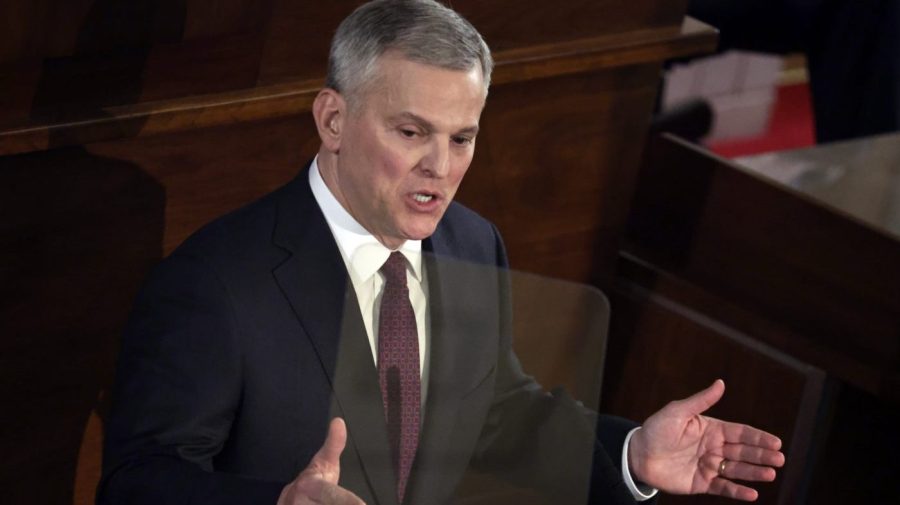House Minority Leader Hakeem Jeffries (D-N.Y.) said Democrats will caucus virtually on Monday after House Speaker Mike Johnson (R-La.) sent his colleagues home for the next week amid the government shutdown.
“People will die. If the Affordable Care Act tax credits are not renewed in short order, millions will lose their healthcare coverage, and the cost of premiums, co-pays and deductibles will skyrocket,” Jeffries wrote in a “Dear Colleague” letter uploaded to his website on Saturday.
“We are in this fight to win this fight for the American people. To that end, the House Democratic Caucus will meet virtually on Monday, October 6 at 6 p.m. ET. Republicans have announced that Members will be given 48 hours notice in advance of any votes that will require travel back to Washington,” he added.
Johnson canceled votes scheduled for next week amid the federal closure and sent lawmakers home to their districts as the standoff between Democrats and Republicans persists.
“The House will come back into session and do its work as soon as Chuck Schumer allows us to reopen the government,” Johnson said in a press conference on Friday, referring to the Senate minority leader (D-N.Y.).
President Trump, Senate Majority Leader John Thune (R-S.D.) and Johnson have pledged not to cave to Democrats’ demands for health care funding, which is at the center of their refusal to approve a GOP stopgap bill that would fund the government until Nov. 21.
However, Thune has signaled that future discussions about Affordable Care Act (ACA) subsidies could happen once the funding lapse is resolved.
“We can’t make commitments or promises on the COVID subsidies, because that’s not something that we can guarantee that there are the votes there to do,” Thune said Friday. “What I said is, I’m hoping to have a conversation with our Democrat colleagues about how to address that issue … But that can’t happen while the government is shut down.”
While Schumer and Jeffries have held firm to their non-negotiables, GOP senators are working to flip a handful of their Democratic colleagues’ votes.
Sen. Maggie Hassan (D-N.H.) is one who seems relatively open to advancing the stopgap measure in exchange for guarantees on ACA subsidy extensions.
“We need a bipartisan path forward in order to get to a deal that protects people’s health, healthcare and prevents their premiums from doubling,” she told CNN.
Three members of the Democratic caucus have already shown a commitment to advancing the GOP resolution: Sen. Catherine Cortez Masto (Nev.), a member of the Democratic leadership team; Sen. John Fetterman (Pa.); and Sen. Angus King (Maine), an independent who caucuses with Democrats and voted in favor of the GOP continuing resolution (CR) twice.
Jeffries and other party members, however, say they won’t trust Republicans’ promises to protect health care funding and have urged GOP lawmakers to solidify ACA subsidies sooner rather than later.
“Why would we believe that Republicans have any interest in addressing the Affordable Care Act, based on their word, when for 15 years Republicans have been doing everything possible to gut the Affordable Care Act?” the House minority leader asked.
Rep. Pete Aguilar (Calif.), chairman of the House Democratic Caucus, echoed his concerns.
“We’re not going to take pinky promises, like Speaker Johnson hands out to his conference,” Aguilar said.
“His word doesn’t mean much to House Democrats, at this point, after backing away from a truly bipartisan CR in December.”














